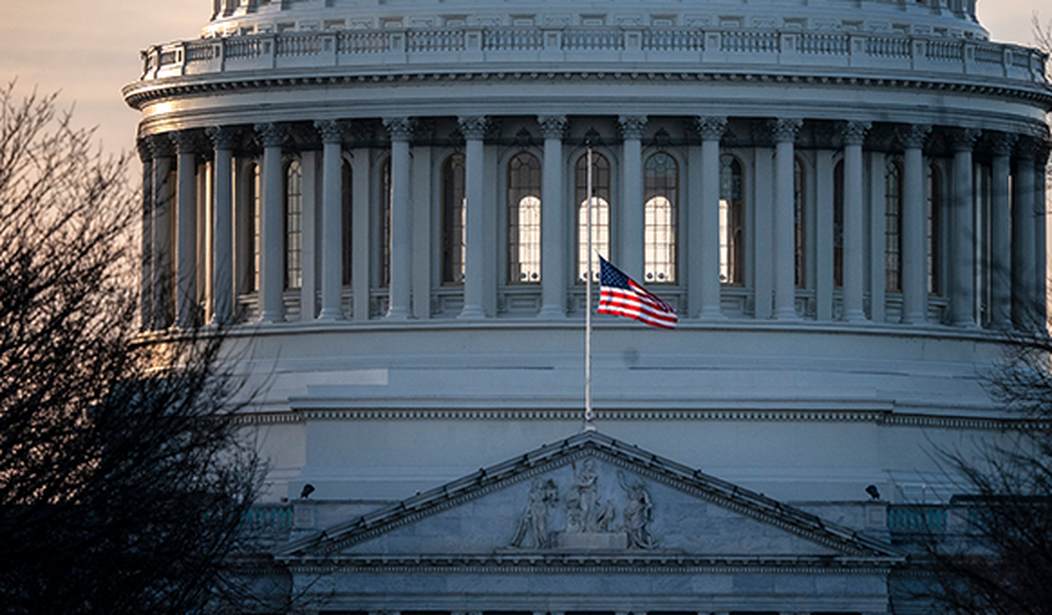Townhall got an exclusive look Monday into The American Conservative Union’s (ACU) “Ratings of Congress” for 2018.
“Every year – since 1974 – ACU selects votes that highlight a clear commitment to conservative values, and selects 20-25 of those votes, and gives Senators and Congressmen a numerical rating (0-100) to reflect their conservatism,” wrote Ian Walters, communications director for ACU. “This would be the release of the most recent batch of federal ratings. So, it’s a look back on how they voted in 2018.”
Two major events determined where senators landed on the conservative scale, the Brett Kavanaugh case and their vote to reinstate the Obama administration’s net neutrality laws.
In an interview with Townhall, Walters said that the organization decided to double weigh the scores based on those events. Each one of the 20 or 25 votes equals five or (roughly) four percentage points respectively.
“So in the case of double weighing, if you’re looking at a 20-count selection where each is five points, then it means it’s actually ten,” Walters said. “So the Kavanaugh vote would be one-tenth of a senator’s total score this year.“
Walters said that ACU decides what votes to double weigh based on, “the level of importance and impact that it had in the past year.”
“In the case of the Kavanaugh nomination, that was an especially brutal fight, and became important to, in our mind, highlight those members of congress who stood firm in what was one of the crazier moments of 2018,” Walters said.
But the Kavanaugh case isn’t the only vote that holds significance. After the FCC voted in late 2017 to repeal net neutrality, the 2018 Senate voted to reinstate the rules. Sens. Lisa Murkowski (R-Alaska), Susan Collins (R-Maine) and John Kennedy (R-LA) joined Democrats in passing the bill, but the House voted against it.
Recommended
Now Democrats are trying again. House Speaker Nancy Pelosi (D-CA) set a vote for Tuesday to pass the Save the Internet Act. 197 out of the 235 House Democrats are co-sponsoring the bill. The act would preserve regulations to prevent internet service providers (ISP) from reducing bandwidth or restricting available content for monetary gain.
But Walters argued that government oversight on ISPs would make the internet less free. He ensured that next year’s evaluation will double weigh on Congress’s vote on the Save the Internet Act.
“In the net neutrality aspect of it, it’s who’s in charge here,” he said. “Is government going to be in charge or are we going to have an Internet that is going to innovate and [adhere to] consumers first?”
Here are some highlights of this year’s results:
- Sens. Mike Lee (R-UT), Rand Paul (R-KY) and Pat Toomey (R-PA) achieved a 100 percent score for “Conservative Excellence” (the category is given to legislators with a score between 90 and 100 percent).
- 11 House members, including Rep. Ted Budd (R-NC) and former Rep. Dave Brat (R-VA) achieved a 100 percent score for “Conservative Excellence.”
- The average score for Senate Republicans is 82 percent, while the Democrats and Independents hold an average of ten percent.
- The average score for House Republicans is 77 percent, while the Democrats and Independents hold an average of eight percent.
- The lowest rated Senate Republican, Lisa Murkowski (AK) and the highest rated Senate Democrat, Joe Manchin (WV), both have a score of 36 percent.

























Join the conversation as a VIP Member